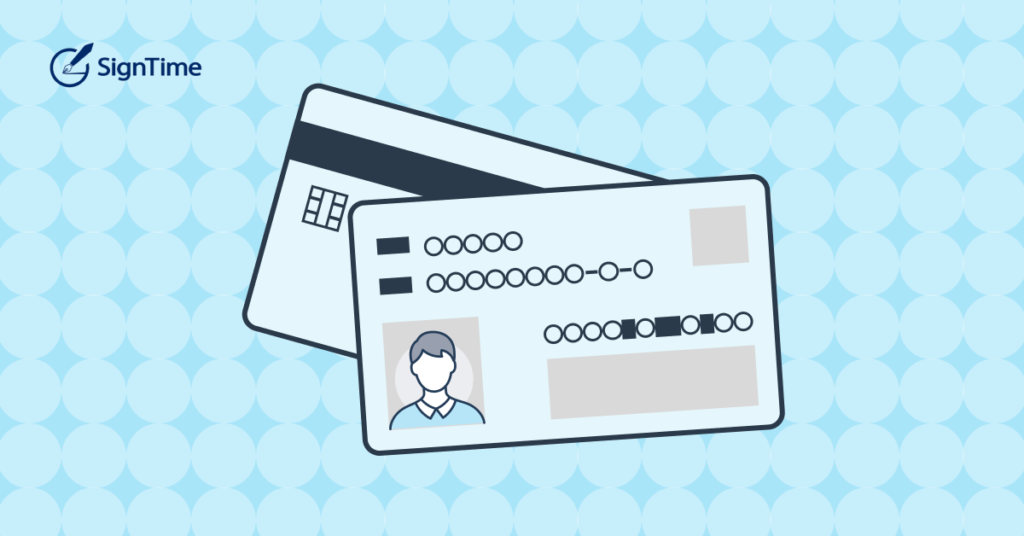SignTime December 2024 newsletter: MyNumber, e-Signatures and Digital Identity in Japan
Hello from the SignTime team and welcome back to our regular newsletter! Please note that our offices will be closed from Friday, December 27 through January 5th. Our servers (and monitoring) will be running, of course, and our team will be checking in to ensure the service is running as expected. Now, back to our regularly scheduled program…
In this edition we’re covering everything you need to know about MyNumber and how it will be integrated into improving e-signatures and digital identity in Japan.
MyNumber Background
In the last two to three years, there have been a number of significant pieces of legislation in Japan that have provided a strong legal framework for the growth of e-signatures for both personal and business use in Japan. Among these have been the Electronic Signature and Certification Business Act (電子署名及び認証業務に関する法律) and the Electronic Bookkeeping Preservation Act, Revision of 2021(電子帳簿保存法). As businesses across Japan have begun to adopt e-signatures at scale, we are often asked about how to effectively manage KYC (Know Your Customer) requirements in Japan with MyNumber and how this national identity number will be integrated into our e-signature products and services.

What is MyNumber?
For those outside of Japan or anyone recently moving to the country, it’s important to understand what MyNumber is. Similar to the U.S.A.’s social security number or the UK’s National Insurance Number, MyNumber in Japan is a unique 12-digit number given to every Japanese citizen as well as residents in Japan.
Enter the MyNumber Card
In addition to issuing all citizens and residents with a national ID number, the Japanese government also issues a physical “MyNumber Card” to people who request them. Recognized as a legal document for identification purposes (similar to a driver’s licence) the MyNumber Card is a plastic card with an embedded IC-chip that lists a holder’s name, address, date of birth, sex, the 12-digit My Number (individual number), along with a photo.
Benefits and Privacy
When the MyNumber system was introduced, the Japanese government was eager to promote the benefits of the new national ID system, including convenience in accessing e-governments services and reduced paperwork and interactions between residents and government bodies. The government was also keen to reassure sceptics that individual privacy would be respected; measures were put in place to protect personal information through encryption and multi-layered data security protocols as well as the implementation of strict laws governing the use of MyNumber.
Future Outlook and e-Signatures
The Japanese government plans to expand the use of the MyNumber system to integrate additional services, including linking it with bank accounts to streamline financial transactions and to provide a basis for more robust digital identity verification.
Utilization for e-Signature Verification
Early in 2025, SignTime will be deploying new features that will allow users to securely associate their MyNumber with their e-signature. Similar to the use of e-Seals by companies, MyNumber data will be stored with our Qualified Trust Service Provider CyberTrust and then associated with an individual user account. In this way, an e-signature can be linked with a user’s MyNumber data to provide additional verification of the identity of the signatory. Identity verification historically required a mix of IDs, including drivers license, health insurance cards along with verification documents from a ward office proving legal residence. And if you’re non-Japanese, the MyNumber card validity is in sync with your legal period of residence (like your resident visa).
Additional Benefits for Users
In addition to improved verification of identity, the MyNumber system will be integrated over the next few years into additional services in Japan, both government based and commercial. Things like car and home insurance contracts, where the insurer needs to verify the identity of the insured, will be easier to process on-line.
Other benefits like verification of remote workers, loan processing, new mobile phone contracts, online real estate purchase and lease contracts and simpler interactions with banking institutions will all be possible.
Conclusion
The MyNumber system is an essential part of Japan’s national administrative infrastructure that aims to modernize and improve the efficiency of public services while maintaining strong safeguards for personal data privacy. Similarly, the use of MyNumber as a secure way to provide additional ID assurance for businesses and individuals for e-signatures, will continue to help build confidence in, and grow the adoption of e-signatures in Japan.
Application Updates (December 2024):
We had gotten feedback from a number of you that you wanted the ability to do things on multiple files at once, and we now support the following:
- Verify timestamps (in compliance with the Electronic Bookkeeping Act)
- Download completed documents.
- Add tags (to enable easier searching)
- Archive documents
We think these improvements will materially enhance our customer experience.
As we mentioned in our last newsletter, we are releasing a feature focused on internal approval workflows, based on earlier feedback on the initial “single internal approval”. This feature will be included in our prime and enterprise plans by default.
We’ve also made a number of security improvements/changes on the backend of our operations, which don’t affect your business directly but are important for the long term health of our operations.
That is enough for this month – our team wishes all of you a Happy New Year and all the best in 2025! And, of course, if you want to talk further about how we can help your business with MyNumber or any other e-signature/Digital Transformation program, book a time or send us an email.
That’s it for this edition and thank you for supporting SignTime!
Best regards,
Jim
Co-Founder and CEO
